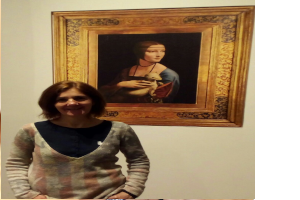The Educational Avant- garde project is the result of a joint initiative by INDIRE and a group of 22 founding schools and led to the recognition
 and definition of innovative teaching schemes. It is open to all schools that welcome the opportunities offered by scholastic autonomy and consider technology as an effective tool to overcome the space-time limitations of “traditional” educational activities.It is based on seven pillars which identify a new way of thinking about education and learning and aims at identifying innovation and making it implementable, sustainable and replicabile in other situations.The objective of the project is to support school change investigating how it is possible to disseminate strategies for Innovation how to standardise practices.
and definition of innovative teaching schemes. It is open to all schools that welcome the opportunities offered by scholastic autonomy and consider technology as an effective tool to overcome the space-time limitations of “traditional” educational activities.It is based on seven pillars which identify a new way of thinking about education and learning and aims at identifying innovation and making it implementable, sustainable and replicabile in other situations.The objective of the project is to support school change investigating how it is possible to disseminate strategies for Innovation how to standardise practices.
Last September I went to a seminar in Salsomaggiore Terme organized by INDIRE as part of the PNSD action #25 and promoted by Scuole in Rete, the network of schools participating in the project. The three-day program was full of innovative contents, challenging ideas and practical examples of positive experiences. The start point, the three basic dimensions of teaching : physical space, time and didactics, was the fil rouge of the seminar. The first speaker was Paolo Davori, an ispettore tecnico, who spoke about the method to be used to bring change at school : experimenting, reporting, disseminating. It is important to share a vision and to overcome the individuality typical of teachers. Among the seven things that “make school “ are the methods, the ring bell, the contents but also space and time and, of course, the people. Carlo Mariani, researcher from INDIRE, said that a sort of bravery is required to break schemes and undertake a journey into innovation that is to say overcome traditional methods, spaces and architectures, fragmented timetables, a school based on the transmission of knowledge.
Luca Solesino, actor and programme manager education, acted the XXVIth canto of Dante’s Inferno about Ulysses in a very effective and powerful way. The title of his speech was “ Il mare alto dell’innovazione “ and had an objective : make the audience think that change is possible because we can overcome the Pillars of Hercules in the school, in our schools, in my school. We can do it. We can become change makers being a little mad, working in teams, looking far away. The second day was dedicated to the presentation of some of the 15 innovative ideas of the Movement : Debating, TEAL, integration of Digital Educational Content, Independent Learning and Tutoring, Differentiated Learning, Service Learning, Flipped Classroom, Coding. Eight laboratories showed the main characteristics of the ideas giving examples of how to use them in the classroom, how to standardise the best practices and the innovative techniques.
The MLTV method ended the seminar, giving us another opportunity to bring change in our schools and to disseminate what we learnt. But, what did we learn? I think we were given the chance to improve the way we usually teach, to widen our horizon, to deepen our knowledge of the mind’s functioning, to believe that change at school is possible, to try and risk a little bit more, to be ready to challenge our colleagues. All in order to enhance students’ performance and improve quality.
Manuela Rivetti Laureata in Lingue e Letterature Straniere presso l’Università degli Studi di Torino, ho conseguito le abilitazioni all’insegnamento per le classi di concorso A45 e A46, lingua inglese nella scuola secondaria di primo grado e lingua e cultura inglese nella secondaria di secondo grado. Ho inoltre conseguito l’abilitazione all’insegnamento nella scuola dell’infanzia e la doppia abilitazione nella scuola primaria, sia come docente su posto comune che come docente di inglese.La lingua inglese e l’insegnamento sono la mia passione, e per questo ho proseguito il mio percorso con un Corso di Perfezionamento in Didattica delle Lingue Straniere.A partire dal 2009 ho svolto diversi corsi di formazione per i docenti della scuola primaria in qualità di tutor per lo sviluppo delle competenze linguistiche--comunicative e metodologico – didattiche presso l’ USR Piemonte. Nell’anno scolastico 2012-13 sono stata la referente del Progetto Comenius Regio “Boosting Knowledge Through Music “, svolto in collaborazione con alcune scuole del Devon, tra cui un istituto “for special needs”, che mi ha permesso di approfondire la conoscenza del sistema scolastico inglese e della cultura anglosassone in materia di insegnamento - apprendimento.Dal 2007 mi occupo di Orientamento scolastico e di continuità come Funzione strumentale. Ho partecipato a vari progetti sulla costruzione del curricolo verticale coordinati dal prof. Martin Dodman e lo scorso anno scolastico ho fatto parte del suo gruppo di lavoro per la correzione nazionale delle prove Invalsi di lingua inglese. Condivido il motto di Edgar Morin, “meglio una testa ben fatta che ben piena”, insieme a quello di William Butler Yeats, “Education is not the filling of a pail, but the lighting of a fire”.



